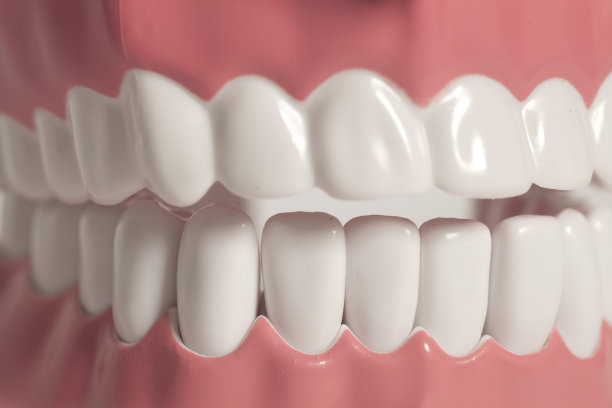Summary: Dental fillings are an essential part of modern dentistry, serving to restore functionality and improve oral health. To enhance the filling experience and ensure long-term benefits, patients must follow specific precautions. This article focuses on four critical areas: understanding the filling process, effective communication with your dentist, maintaining oral hygiene post-procedure, and regular dental check-ups. By adhering to these guidelines, patients can attain a successful dental filling experience and foster lasting oral health.
1. Understanding the Filling Process is Crucial

Before undergoing any dental procedure, it is important for patients to comprehend the filling process thoroughly. This understanding can alleviate anxiety and set realistic expectations. Dental fillings involve removing decayed tooth material, cleaning the affected area, and then filling it with various materials, such as composite resin, amalgam, or gold.
Knowing the steps can help patients feel more in control. An initial examination and potentially X-rays might be needed to determine the extent of decay. Discussing the filling material choice with the dentist facilitates informed decision-making, as different materials have unique advantages and longevity.
Ultimately, a well-informed patient is more likely to cooperate during the procedure, leading to a more successful outcome. Understanding the filling process cultivates a sense of trust between the patient and the dentist, establishing a positive foundation for ongoing oral care.
2. Effective Communication with Your Dentist
Effective communication is vital during any dental procedure. Patients should openly express any concerns, fears, or previous experiences related to dental visits. This transparency can empower the dentist to customize the treatment approach based on the patients needs. Be sure to ask about the procedure, sedation options, and post-operative care to clarify any uncertainties.
Additionally, discussing your medical history is integral. Certain health conditions or medications can affect treatment choices and outcomes. If you have allergies, heart conditions, or are taking anticoagulants, make sure to notify your dentist in advance.
Regular follow-up appointments or consultations allow for ongoing dialogue, ensuring that all questions and worries can be addressed. Clear and collaborative communication contributes significantly to the overall success of the filling process and promotes a positive dental experience.
3. Importance of Maintaining Oral Hygiene
After a dental filling, maintaining robust oral hygiene becomes crucial for longevity. Patients should continue with their established oral care routine, brushing twice daily and flossing regularly. Using fluoride toothpaste is advisable, as it strengthens enamel and helps prevent further decay.
It is also beneficial to incorporate mouth rinses that contain antibacterial properties. Such rinses can eliminate harmful bacteria in the mouth, helping to protect the tooth that has received a filling. Special attention should be given to the filled tooth to ensure food particles do not linger, as this can lead to secondary decay.
Individuals should also watch for any discomfort or unusual sensations post-procedure. If persistent sensitivity, severe pain, or discoloration occurs, it is crucial to consult the dentist promptly to address any potential issues with the filling.
4. Regular Dental Check-ups are Essential
Routine dental check-ups play an essential role in oral health maintenance, particularly after receiving a filling. A dental professional can monitor the condition of the filling, check for signs of decay around it, and provide professional cleanings, which are instrumental in preventing future issues.
Patients should aim to schedule dental visits at least twice a year, or as recommended by their dentist. These visits allow for proactive measures to be taken, identifying potential concerns before they escalate into more significant problems, thereby saving patients time and money in the long run.
Moreover, regular check-ups foster a collaborative relationship with the dentist, who can offer tailored advice on oral hygiene practices and dietary considerations to prolong the life of dental restorations.
Summary:
In conclusion, understanding the dental filling process, maintaining effective communication with your dentist, practicing diligent oral hygiene, and committing to regular dental check-ups are all crucial steps for a successful filling experience and lasting oral health. By following these essential precautions, patients can ensure their dental fillings serve their purpose effectively and contribute to their overall well-being.
This article is compiled by Vickong Dental and the content is for reference only
Vickong Dental
Vickong Dental is a large medical group established in Hong Kong in 2008 by professors from well-known medical universities in Guangdong and Hong Kong, as well as medical doctors from key national '985' universities (including Master's supervisors and senior professors). The chain of branches brings together expert dentists with PhDs and Master's degrees from Hong Kong and Mainland China, committed to providing high-quality dental treatment.
"Vickong Dental Practices the University Motto of 'Healing and Serving Society,' with a Stable Operation for Sixteen Years. It Has Been honored with Hong Kong Enterprise Leaders's Choice,' and is a Global Trusted Implant Center for the Nobel Implant System. Recommended by Hong Kong Metro Broadcast and Guangdong Television, it Serves Customers from Over Thirty Countries and Regions, Gaining the Trust and Favor of Citizens from the Guangdong-Hong Kong-Macau Greater Bay Area and Surrounding Cities.

Thousands of customers' unanimous praise
The most recognized and highly recommended dental service by customers in the Guangdong-Hong Kong-Macau Greater Bay Area
We Ensure You Receive Detailed Care and Attention Here
Hong Kong standards, Shenzhen prices, Your Trusted English-speaking dentists

Vickong Dental Medical-Grade Instrument Disinfection Process
Vickong Dental Medical-Grade Instrument Disinfection Process

Vickong Dental Chain: A Warm and Comfortable Environment for Treatment






Appointment Hours

Q&A
Why choose Vickong Dental?
Vickong Dental practices the university motto 「Medicine to Benefit Society」, with each branch bringing together highly qualified dentists with doctoral and master’s degrees from Hong Kong and the Mainland, and has maintained seventeen years of steady operation。Recipient of 「2024 Hong Kong Enterprise Leaders Brand」, 「2025 Hong Kong Enterprise Leaders Brand」, a Nobel Biocare Global Trusted Implant Center, and a brand recommended by Metro Radio Hong Kong and Guangdong TV。
To date, we have served customers from more than thirty countries and regions,earning exceptionally high word-of-mouth recognition and trusted recommendations from residents across the Guangdong-Hong Kong-Macao Greater Bay Area and surrounding cities
We have eight major branches in Zhuhai、Shenzhen,and a consultation and service assurance center in Hong Kong,so you can book a free consultation at any time for any questions,which is very reassuring.
If I do not accept the quotation after the CT scan, will I be charged??
No! As long as the actual treatment has not started, you will not be charged any fees.
Will there be any additional charges during the treatment process?
No, there won’t be any additional charges. Before treatment begins, we will clearly explain the treatment plan and its corresponding fees. Only after the patient agrees and signs the consent form will we proceed with the dental service.
Can I pay in Hong Kong dollars?
Yes. Vickong Dental accepts payment in Hong Kong dollars. The amount will be converted based on the exchange rate of the day, and the applicable rate will be clearly communicated to you in advance.
Can I reschedule my appointment at any time?
Yes. Please contact us via **WeChat** or **WhatsApp** as early as possible, providing your original appointment time and details, along with your preferred new date and time slot for rescheduling.













